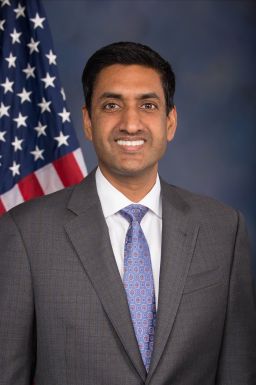Editor’s Note: Elizabeth Warren, a Democrat, is a US senator from Massachusetts. Ro Khanna, a Democrat, is a US representative from California. The opinions expressed in this commentary are their own; view more opinion at CNN.
In August, the world watched in horror as a Saudi-led coalition airstrike in Yemen claimed the lives of 40 innocent children. The boys, many under the age of 10, were killed when their school bus was bombed during a class trip. The weapon used in that deadly bombing was made in America.

It was not the first time. In June, airstrikes hit a cholera treatment center run by Doctors Without Borders, even though it was clearly identified as a medical facility.

In April, 20 civilians, many from a single family, were killed while celebrating a wedding in a village in northwest Yemen.
As a result of this conflict, at least 10,000 Yemenis have died, 2 million more are displaced, and 22 million are in need of humanitarian assistance. To make matters worse, a man-made famine has brought nearly 8 million people in Yemen to the brink of starvation.
This humanitarian catastrophe didn’t happen overnight. For more than three years, a military coalition led by Saudi Arabia and the United Arab Emirates has been bombing Yemen as part of a proxy war to counter the Iran-supported Houthi militias.
During this period, the United States has been quietly providing intelligence and military advice to the Saudi-led coalition. Our government refuels Saudi coalition warplanes in midair. Our government provides advice and assistance. Our government authorizes the sale of US-made bombs and missiles the coalition uses to conduct this war.
There is no doubt that Iran’s actions in Yemen are destabilizing. Iran’s government supports militias that attack Saudi territory and undermine the internationally recognized central government of Yemen. But we can no longer turn a blind eye to the actions of the Saudi coalition – or our own role in the suffering of the Yemeni people.
There is a growing push in Washington to seek an end to this civil war. In this year’s defense authorization bill, Congress threatened to cut off US support for the Saudi-led coalition’s operations in Yemen until the Trump administration certified the coalition was making “an urgent and good faith effort” to reduce civilian casualties, alleviate the humanitarian crisis, and negotiate an end to the civil war.
But rather than using this opportunity as leverage to hold our partners accountable, Secretary of State Mike Pompeo rubber-stamped the Saudi-led coalition’s actions. Secretary of Defense James Mattis asserted that the coalition was making “every effort” to prevent civilian casualties – even as the United Nations reported that the coalition was responsible for the majority of the children killed in Yemen last year.
The administration’s decision to double down on US support for the bombing campaign makes a mockery of congressional oversight authority. Overlooking the Saudi-led coalition’s apparent disregard for international norms and laws of armed conflict does nothing to improve US standing in the world. And continuing to support an ill-conceived proxy war in Yemen does not make America safer.
The framers of our Constitution believed that the decision to involve ourselves in a conflict like the one in Yemen requires the consent of the people, expressed through their elected representatives. But Congress has never authorized our involvement in this conflict. That’s why we have supported bicameral, bipartisan efforts to end the US involvement in Yemen’s civil war unless Congress specifically authorizes it.
While counterterrorism operations against al Qaeda and its affiliates would continue, support for the Saudi coalition’s military operations against the Houthis would stop.
The crisis in Yemen is worsening, and the United States can do something about it. We can hold the Saudi coalition accountable. We can demand that all parties cease the violence. We can support UN Special Envoy Martin Griffiths’ peace negotiations.
The Yemeni people are suffering. Instead of supporting more bombing, the United States can help bring peace to the region. Congress has an urgent responsibility to act.

